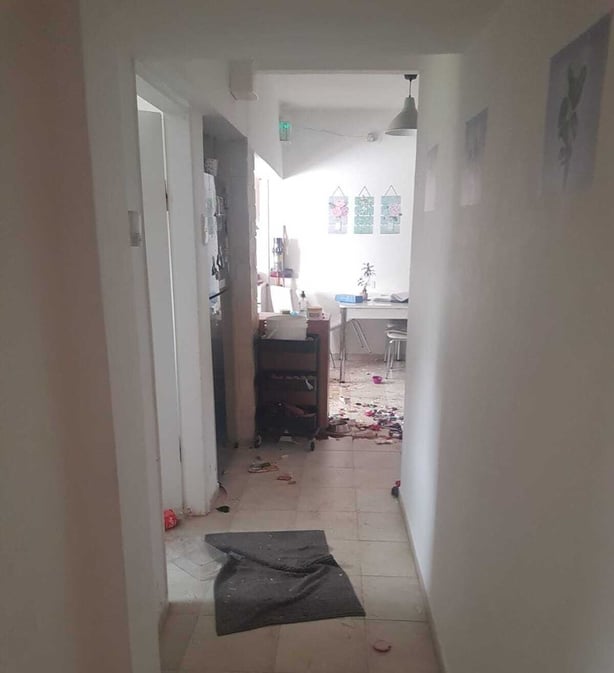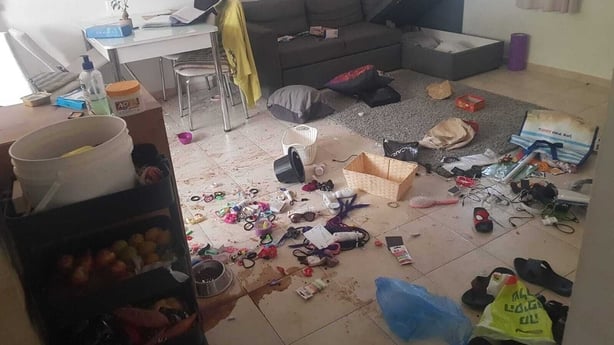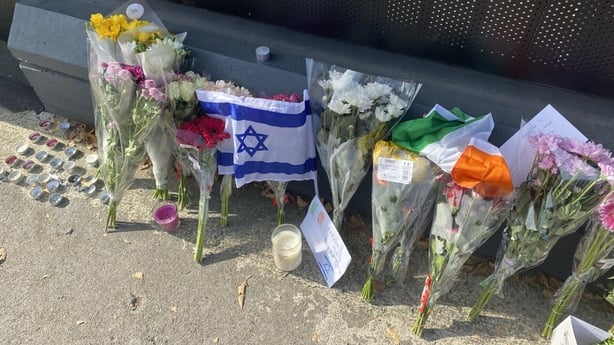An Israeli woman living in Ireland has described how her parents narrowly escaped an attack by Hamas on Saturday which claimed the lives of some of their neighbours in the Nir Oz kibbutz where she grew up.
Tala, who has been living in Dublin for 12 years, said she was shocked to see the destruction of the area and that some of her family's friends died from smoke inhalation after their homes were set on fire, whilst one elderly man was shot during the attack that went on for hours.
She said that when she woke up on Saturday morning she immediately knew something terrible was unfolding as she received a message from her father who was inside the family's "safe room" at their home.
Her mother had left her phone behind after being woken up early by an alert to warn them that an attack was imminent.
"I just woke up into a nightmare really," she said, describing the last 36 hours of worrying about her parents as the worst of her life.
Tala said: "My parents are both over 75 years old and they live just outside of the Gaza strip border.
"They woke up and ran straight to their safe room and basically waited for all clear.
"When they started to hear sounds of gunshots and voices outside, they realised something completely different from missiles was coming their way."

Over the next 11 hours, when they were escorted out by the army, she said they knew from communications with neighbours that shooting and looting was happening on the other side of their locked door.
She said: "There were abductions of a lot of the population. We're talking elderly, very young children, babies a few months old, with their mums and their grandmothers being abducted all around them."
One of her parents' neighbours and good friends was shot, just short of his 80th birthday.
She said it was a very difficult 11 hours of waiting and not knowing and after being taken to another area under army guard overnight, her parents are now safe at her sister's house in southern Israel.

While some homes were burned, Tala's parents' home was turned upside down with wallets and computers taken.
Buses on which people were evacuated also came under gunfire as they left.
Tala hopes she’ll be able to see her parents, who had visited Ireland just last month, soon, but that travelling is not currently advisable.
Flowers have been laid outside the Israeli embassy in Dublin to remember those killed and missing in the attack.
The embassy said it was grateful for the expressions of support from Irish people and that there has also been widespread international support.
This evening hundreds of demonstrators gathered in Dublin city centre to express their opposition to the bombardment and blockade of Gaza by the Israeli government.
One woman, Asil Khaled Naser, who was protesting outside the Dáil, is originally from Gaza and is very worried for her family there.
She said: "It's unbelievable. They can't even say it in words, videos can't describe how bad it is.
"They have bombed every building and every ministry and every house around them."

Ms Khaled Naser said even the buildings that were not bombed were now watched and under siege.
"They're under attack from everywhere," she explained, saying nowhere was safe for civilians to even take shelter.
She added: "There are no shelters. This is the point ... even the material that builds shelters in Gaza is prohibited from entering Gaza."
She said her family still has some food and electricity, but she has little hope for them over the coming days when she expects communication to become more difficult too.
Asked about her call to the international community, she said: "It's not fair to compare or even say that it's a war. It's not a fair war.
"The people of Gaza have been under siege for more than seven years now and they are being compared to a country that has weapons.
"Israel has military, has everything. Israel is committing a crime and no one is telling them to stop."
Another Palestinian living in Ireland, Adnan Aklouk, said he had relatives in Gaza and the West Bank.
He described conditions in Gaza as being like an open-air prison.
He added: "It's a very densely populated area. So, these people are being bombed and there's nowhere for them to go."
He described images coming from there as distressing.







